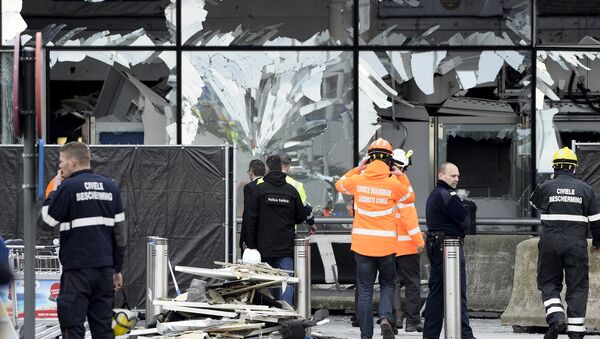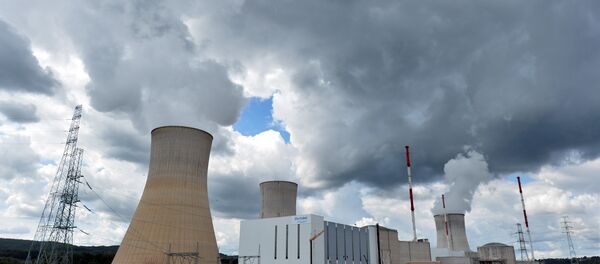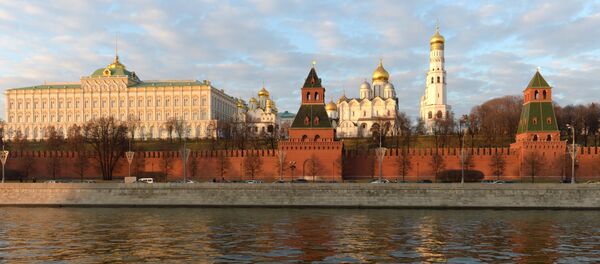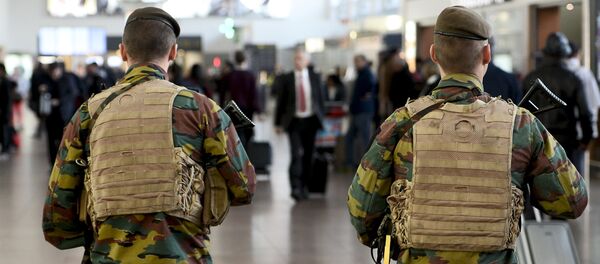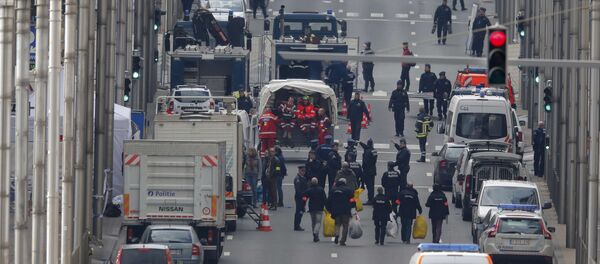In a series of tweets on Tuesday and Wednesday, Alexei Pushkov, the head of the Foreign Affairs Committee in Russia’s parliament, suggested that perhaps the European and US officials entrusted with maintaining security should stop treating Russia as a threat to the West, and focus on the real danger: radical Islamist terrorism.
Expressing his deep condolences for the relatives of those killed, Pushkov noted that while NATO Secretary General Jens Stoltenberg was "getting carried away" fighting "the imaginary Russian threat," people were "being blown up right under his nose in Brussels."
A few hours later and into Wednesday, Pushkov released more tweets, suggesting that "it’s high time for the West to reject anti-Russian hysteria and to turn to cooperation with Russia against terrorism. Paris and Brussels have shown exactly who threatens Europe."
In Wednesday's tweet, he took an even firmer stand, echoing the position taken by some independent journalists and recalling that “those responsible for the terror attacks in Brussels are the same jihadists who fought in Libya against Gaddafi and in Syria against Assad. But in Europe, they prefer to remain silent about this.”
Pushkov’s remarks, repeated in various iterations by some other Russian politicians, caused faux outrage among some Western publications, with Newsweek claiming that the politician was "taunting" the West, the Huffington Post calling his words “provocative,” and The Washington Post, which put together a collection of Russian officials' responses to the attacks, listing Pushkov’s comments under "ugly hot takes."
Their frustration is understandable. While Western officials have repeatedly classified Russia as an ‘existential threat’, President Barack Obama has pointedly refused to do so in relation to Daesh, even immediately following the Brussels attacks.
On Wednesday, during his visit to Argentina, Obama said that "groups like ISIL can’t destroy us, they can’t defeat us, they don’t produce anything. They’re not an existential threat to us…Even as we are systematic and ruthless in going after them, disrupting their networks, getting their leaders, rolling up their operations, it is very important to us not to respond with fear."
In other words, the leader of the free world seemed to confirm that Islamist terrorists who have the audacity to murder Europeans in the streets of their own capitals are not an existential threat to the West's existence, while Russia, which is fighting these same terrorists, is.
In this light, Puskhov's comments, and those of other Russian officials, no longer seem to sound so absurd; on the contrary, they gain an air of common sense.
In addition to billions in new spending on conventional forces, new troop deployments, the delivery of heavy US equipment to Eastern Europe, and the US's missile defense shield, the Pentagon now plans to spend over a trillion dollars on modernizing its nuclear weaponry in the coming decades.
All this spending is devoted to countering a hypothetical 'Russian existential threat' which, in all fairness, hasn't actually manifested itself in any location vital to US or European security. Terrorist groups including Daesh and Al-Qaeda, on the other hand, have repeatedly demonstrated both an ideologically driven propensity to attack the West, and the material and organizational capacity to do so.
"One cannot support them in one region, in the Middle East or North Caucasus, and still think that this terrible sickness of the modern world will not come to other parts of the world," she said, hinting at Western nations' support for the so-called 'moderate Islamists' in Syria. "It can't possibly be that way."
Unfortunately, she added, "people are beginning to understand that this policy leads to a dead end, but only at the cost of greater and greater sacrifices – through lost time and lost lives."
Today, Zakharova suggests, "one gets the sense that there is a deliberate informational campaign to divert international attention from the most important threat which exists today – terrorism. All kinds of threats, all sorts of pretexts, are invented to find trouble where it doesn't exist, while the real problem is not noticed at all," she said, hinting at the issues mentioned above.
For their part, Russian officials, even if they feel slighted by the fact that their country is called an 'existential threat', while actual terrorists are not, have not given up hope. In a speech about the Brussels attacks, Sergei Naryshkin, the speaker of the lower house of Russian parliament, emphasized that it is not too late for "the civilized world" to "unite in fighting against the common threat of international terrorism."
This, he suggested, would only be possible if the politicians of EU and NATO countries, rather than "announcing all types of [anti-Russian] sanctions," and "bargaining over the fate of hundreds of thousands of refugees from the Middle East and North Africa," were willing to take "resolute measures" to fight the scourge.
The only question is: is the West willing, and is it able, to make the necessary shift in its priorities when it comes to its security?

